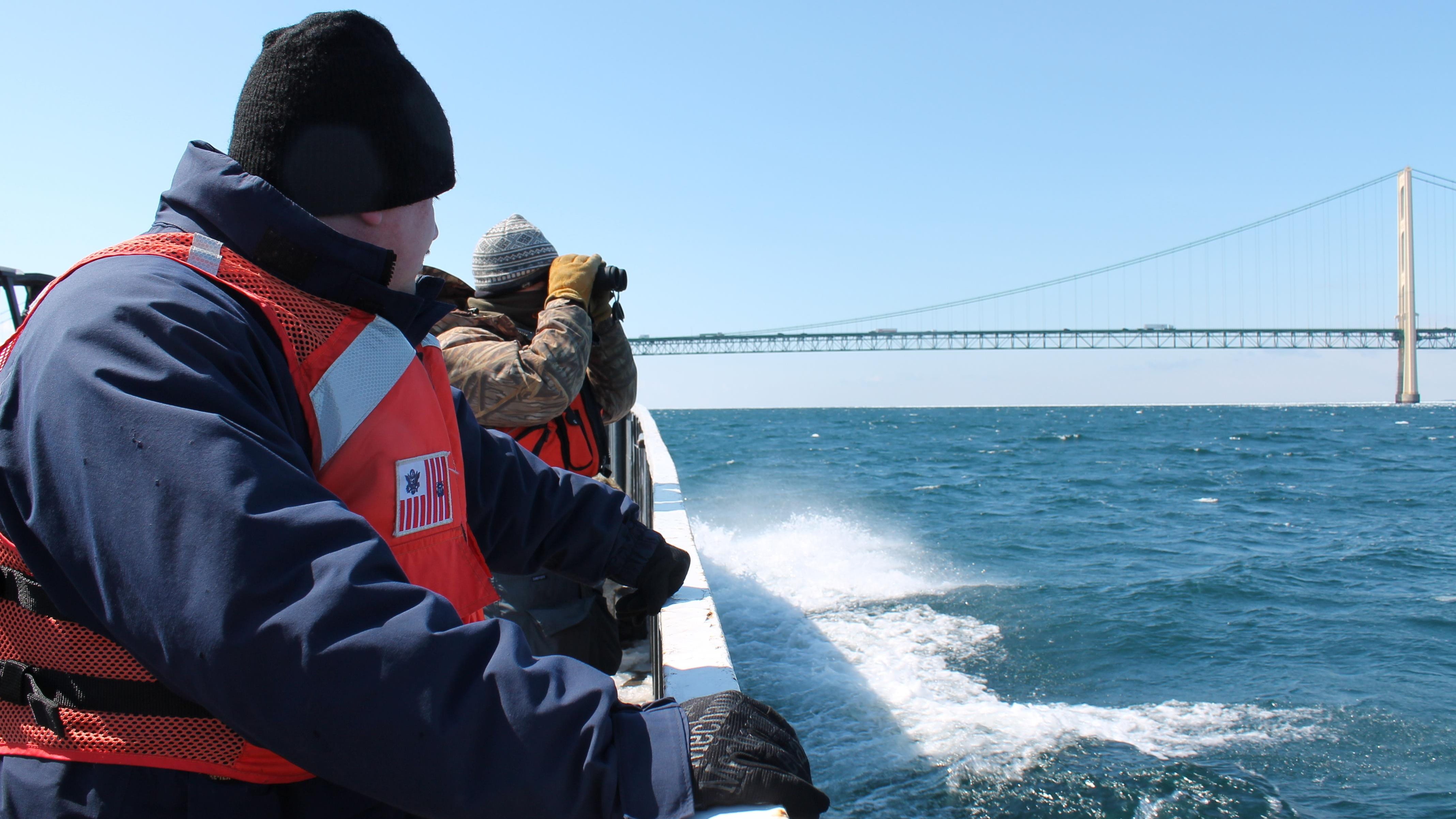Snyder issues ‘no-anchor’ order for straits following strike
 Jonathan Oosting
Jonathan OostingLansing — Michigan Gov. Rick Snyder approved an emergency order Thursday prohibiting ships from dropping anchors in the Straits of Mackinac following an April strike that ruptured transmission cables and dented an oil pipeline.

The rule formalizes an informal anchor restriction in the straits, according to Snyder’s office. The state is engaged in “productive” discussions with the U.S. Coast Guard on permanent measures to complement the emergency rule.
The new rule, signed by Snyder and Department of Natural Resources Director Keith Creagh, would only prohibit boats from deploying, dragging, setting or otherwise using an anchor in a defined area of the straits, except in cases of emergency or with prior written permission.
A suspected anchor strike last month damaged a pair of power cables, causing nearly 600 gallons of insulation fluid to leak into the straits, and dented Enbridge’s Line 5 oil pipeline. A Coast Guard spokesman said at the time that nautical maps warn against anchor drops in the area but there is no specific regulation against doing so.
But “anchoring in the Straits of Mackinac poses a serious threat to the welfare and protection of Michigan and our vital natural resources,” Snyder said in a statement.
“Anchoring could cause severe environmental damage and threatens to disrupt critical energy and communication services between the Upper and Lower peninsulas. This emergency rule will help us better protect Michigan waters and residents until a permanent solution is in place.”
Attorney General Bill Schuette’s office is suing VanEnkevort Tug and Barge Inc., the Escanaba-based company whose boat allegedly dropped anchor in the straits on or around April 1.
The anchor strike dented both of Enbridge Energy’s twin oil pipelines, struck three active underwater electric cables and one additional abandoned electrical cable, according to a finding of emergency filed with the new emergency rule.
Two of the active cables ruptured, “releasing dielectric fluid containing mineral oil and benzene,” among other substances. “Both the mineral oil and benzene may cause adverse environmental effects and benzene is acutely toxic to aquatic life,” the state said.
The Detroit News reported in April that Coast Guard officials know a ship’s anchor was lowered far enough to damage the American Transmission Co. power cable and cause three dents in the twin pipelines of Line 5.
The Coast Guard has said “vessel activity ... may have caused” damage to power transmission lines as well as Line 5, but has emphasized its marine investigation isn’t finished and that the probe could take “months.”
The Michigan Department of Environmental Quality has said the leak from two cables belonging to the Wisconsin-based American Transmission posed “no immediate public health threat.” The cables were shut down shortly after the leak was identified, and officials haven't observed an oil sheen or impact to surrounding wildlife.
The strike renewed calls to shutdown or replace Line 5, Enbridge’s 65-year-old pipeline that runs along the bottom of the straits, a turbulent waterway that connects Lake Huron and Lake Michigan.
Snyder said last month he wants to require Enbridge to decommission Line 5 and construct a tunnel for a replacement pipeline if studies show the tunnel could be built and wouldn’t cause “significant environmental damage.”
joosting@detroitnews.com
(517) 371-3662